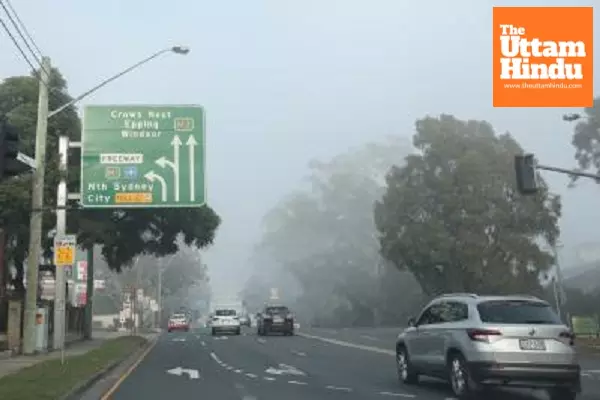
Millions of Australians warned to prepare for severe heat, possible fires

Sydney (The Uttam Hindu): Millions of people in southeast Australia have been warned to prepare for severe heat and possible fires. Temperatures across Victoria, Australia's second-most populous state, and in parts of South Australia were forecast to surpass 40 degrees Celsius on Monday, prompting widespread emergency warnings.
In Melbourne, the capital of Victoria, the temperature is forecast to hit 41 degrees Celsius, the city's hottest December day since 2019. A total fire ban has been declared for most of Victoria and firefighting authorities across the state have been put on high alert. Meteorologists have warned that dry lightning storms could elevate the fire risk. Jason Heffernan, chief executive of the Country Fire Authority, said at a press conference on Sunday evening that a combination of the heat and dry winds would make for horrendous fire conditions in Victoria's west.
"If fires do start in the landscape, they will be hard to suppress, they will spread very quickly," he said. A Boeing 737 Fireliner with the capacity to carry and dump 15,000 liters of water or fire retardant has been deployed to the state, Xinhua news agency reported. Chris Hardman, chief fire officer from Forest Fire Management Victoria, said that 54 firefighting aircraft have been moved around the state to ensure they are located close to where the risk is.
The state government has issued a heat health warning, advising people to stay indoors and urging them to check on those most at risk, including the elderly. Last month, the Australian emergency authorities had warned that much of the country's south coast is facing an increased bushfire risk during the upcoming summer. The National Council for Fire and Emergency Services (AFAC) released the Seasonal Bushfire Outlook for Summer 2024, warning of an increased fire risk for large areas of the country.
It said that approximately half of the southeastern state of Victoria, Australia's second-most populous state, the southern coastline of the state of Western Australia (WA), and parts of the coastal region of the state of South Australia (SA) have an increased fire risk. Large parts of the Northern Territory (NT) outback are facing an increased fire risk, AFAC warned, as are inland areas in New South Wales (NSW), the most populous state, and WA's central west coast.
According to AFAC, mean temperatures across Australia between April and October were the third-highest recorded since 1910 and rainfall in the country's south was below average. "The dry winter and spring period across southern Australia mean the landscape is well primed for bushfires. Communities should be ready for bushfires and have a plan in place. We hope the rains come but it makes sense to plan as if they don't," AFAC chief executive Rob Webb said in a statement. The summer long-range forecast released separately by the Bureau of Meteorology (BoM) showed that the season is likely to be warmer than average across most of the country.
However, it also forecast more summer rainfall, particularly in December. "October to April is Australia's peak time for severe thunderstorms, tropical cyclones, flooding, heatwaves and bushfires," the BoM said.

